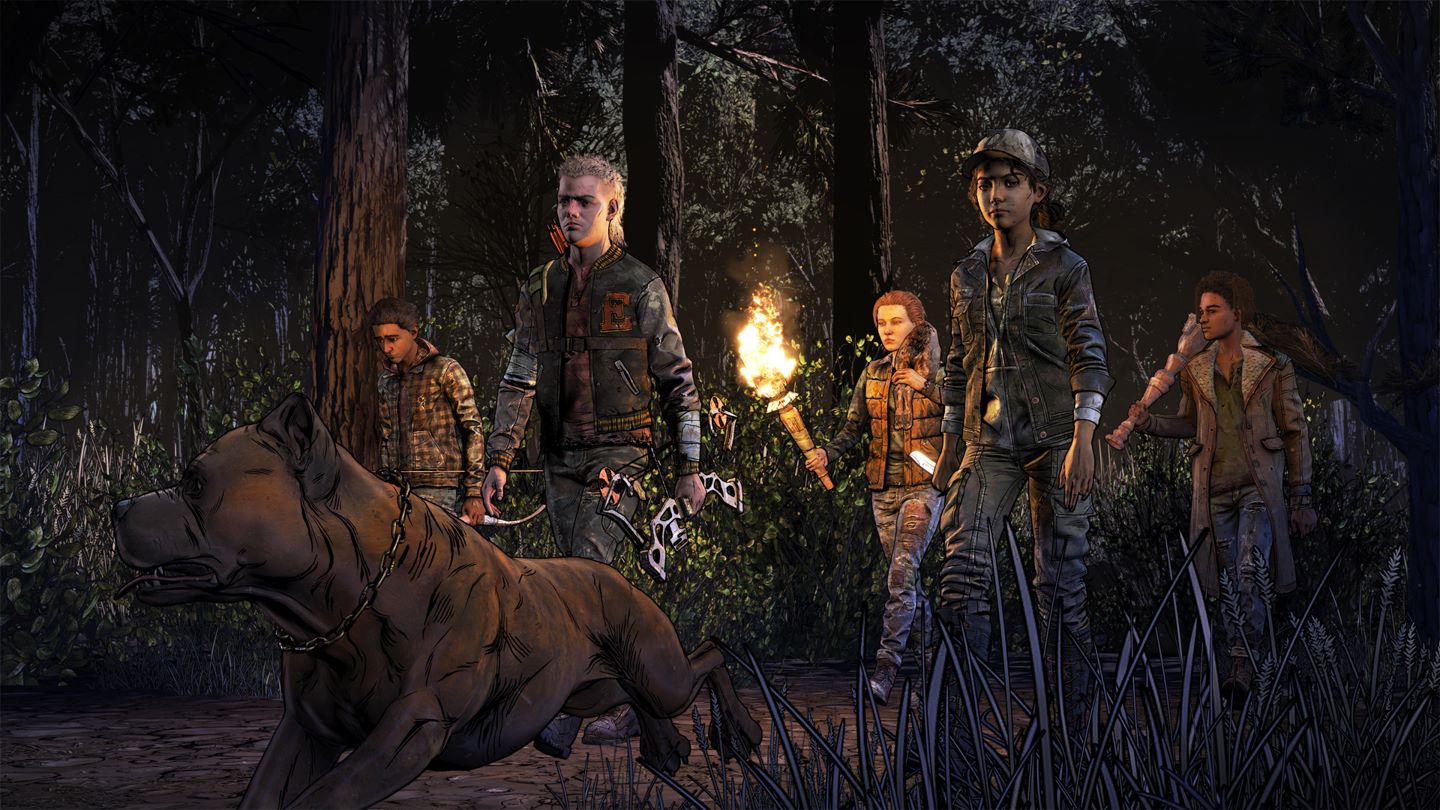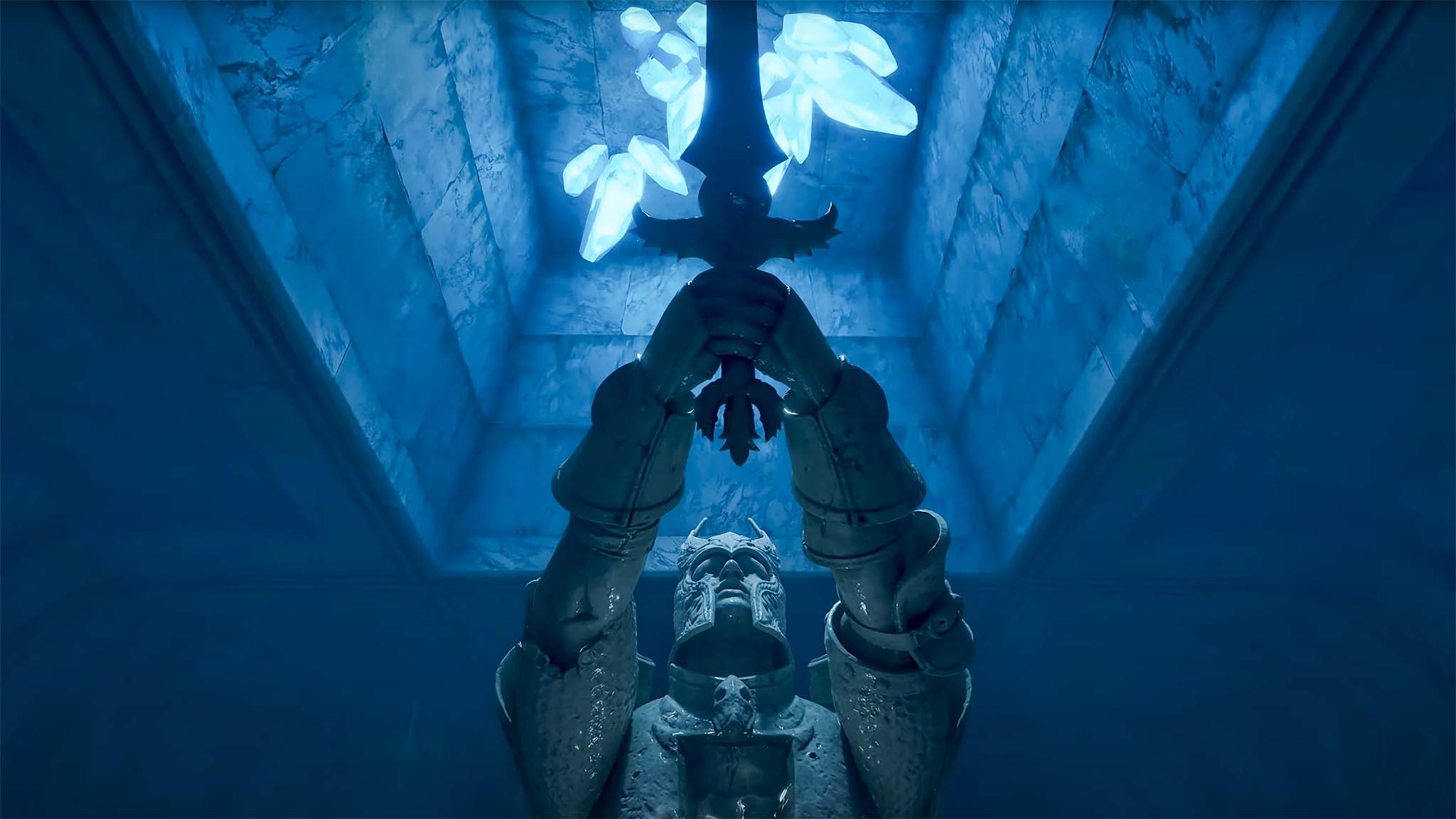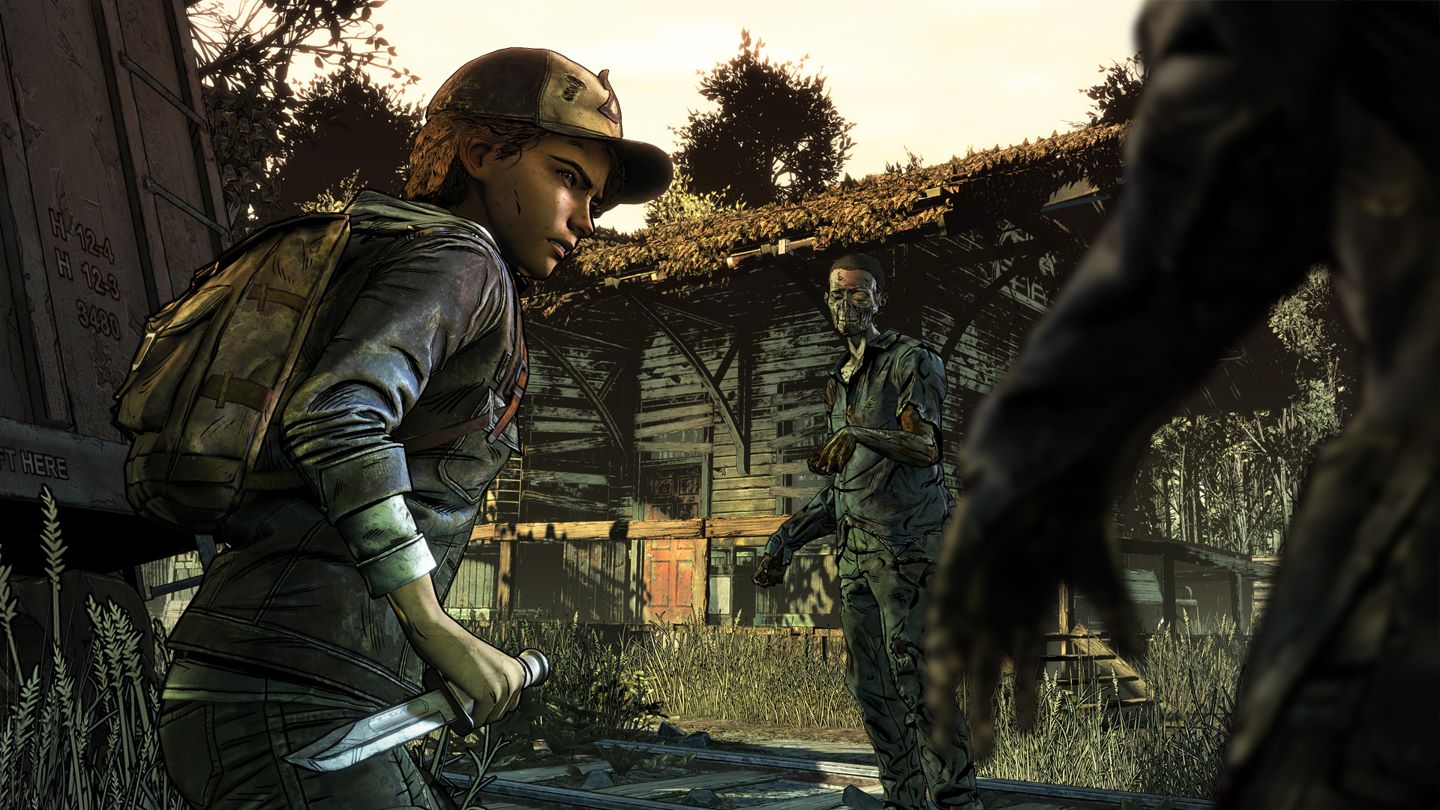
After following her journey since the beginning, Telltale is closing the chapter on Clementine's story with their final season of The Walking Dead. While we're only a few pages in with Episode One – Done Running, it looks to set up an emotional farewell in her coming of age story. Clementine isn't all grown up by normal standards, but in The Walking Dead's world she needs to be.
Familiar waters
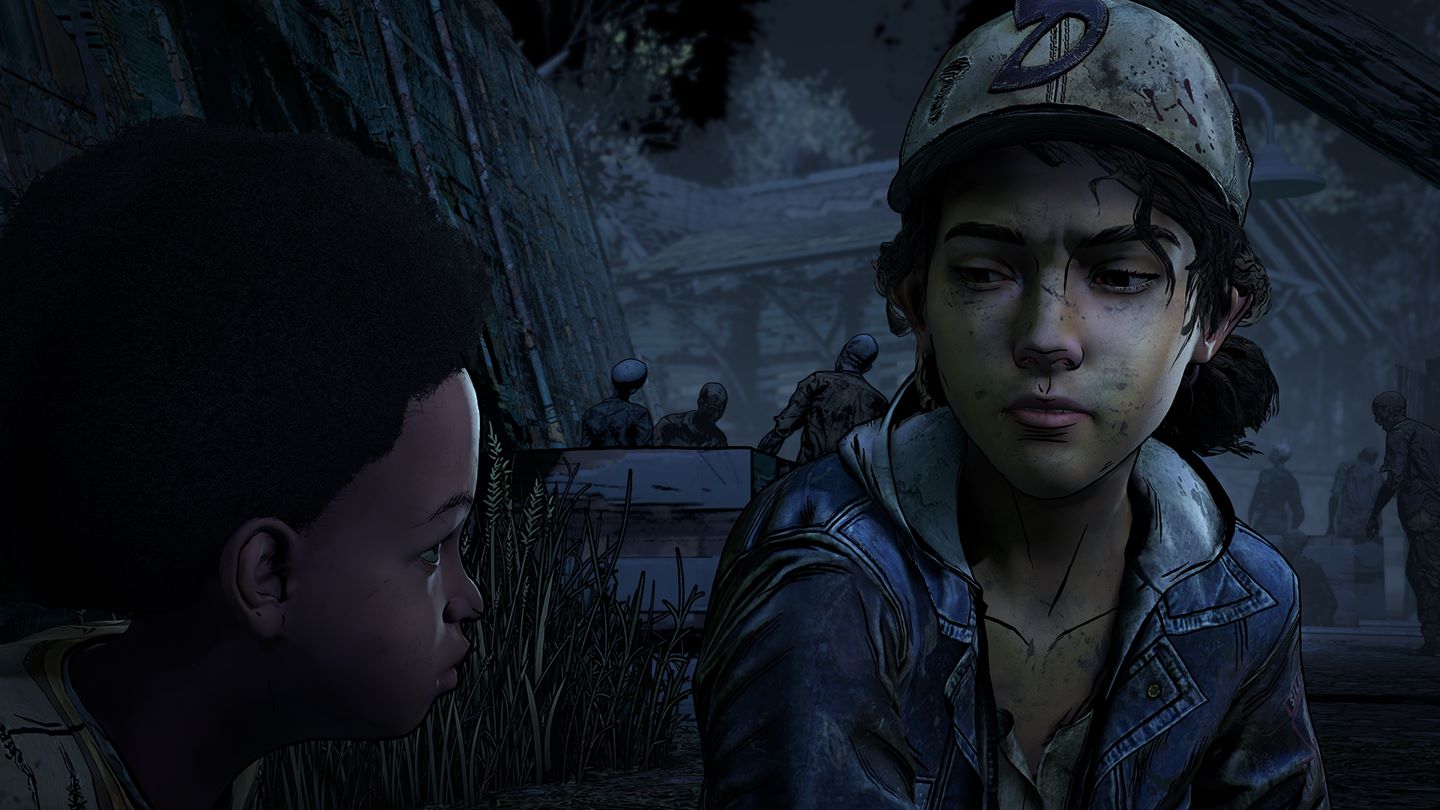
Since his birth in Season Two, AJ has been an integral part of The Walking Dead's identity, even without being a playable character. The history that Clem and AJ share isn't glossed over in its final season. When The Walking Dead isn't all about survival of the fittest, it's about the intimate character moments and their development.
At one point during Done Running, Clem has a chance to relax and play a game of cards with the new group of kids she ran into. It's during this game that Clem is asked if she's ever had to kill someone she's loved, and while Lee may be the first person that pops into most people's minds, she also had to make a difficult decision regarding Kenny at the end of Season Two that stemmed from AJ. It's clear that the choices she's been forced to make in the past are still affecting her to this day, and have shaped her into who she is. Remembering its past has always been what The Walking Dead has done well, and I'm glad to say that the tradition continues.
Remembering its past has always been what The Walking Dead has done well.
Its final season also sees a role reversal of sorts, adding a new angle to the retreaded 'parent/child' storyline fraught in post-apocalyptic media. Lee served as Clem's parental figure in the first season, helping her adjust and navigate to a world she was entirely unprepared for. Now it's Clem's time to be that parental figure for AJ. It's clear that Clem is much more equipped to deal with the situation than Lee ever was as it's been years since the dead started walking. She's been hardened by her environment.
This plays a role in how she interacts with AJ. He's only known the world after its devastation, which becomes even more apparent during a scene where he is confused as to what firemen and policemen were. Though he's ignorant of pre-apocalyptic life, Clem doesn't hold this ignorance against him, and in fact even trusts him with a gun. It's this duality of his innocence and the responsibility thrust upon him in this universe that makes for compelling interactions between him and other characters.
Clem simultaneously needs to treat AJ as a child that needs protecting while also realizing that he needs to grow up fast. She allows him to feel useful and help whenever possible, but she won't put him in direct danger. Even after just one episode, I'm interested to see how their relationship developers.
Uncharted territory
The new group of kids that Clem and AJ come across are survivors who have made a home out of Ericson's Boarding School for Troubled Youth. (X-Men reference, anyone?) The children all appear to be a group of misfits just struggling to get by, making a new life for themselves without adults, who abandoned them when everything went to hell. Interacting with other teenagers is a breath of fresh air from usual. They're all relatively the same age, meaning they have a lot more in common. Though a boy named Marlon appears to be the de-facto leader, everyone has their own importance within it. They're not shoved aside just because they're kids.
I look forward to witnessing the character dynamics and relationships develop as the season goes on. A few characters that grated on my nerves initially ended up becoming my saving grace by the end of the episode. If Telltale keeps it up, they may have even created some of my favorite characters in the series to date.
New threats
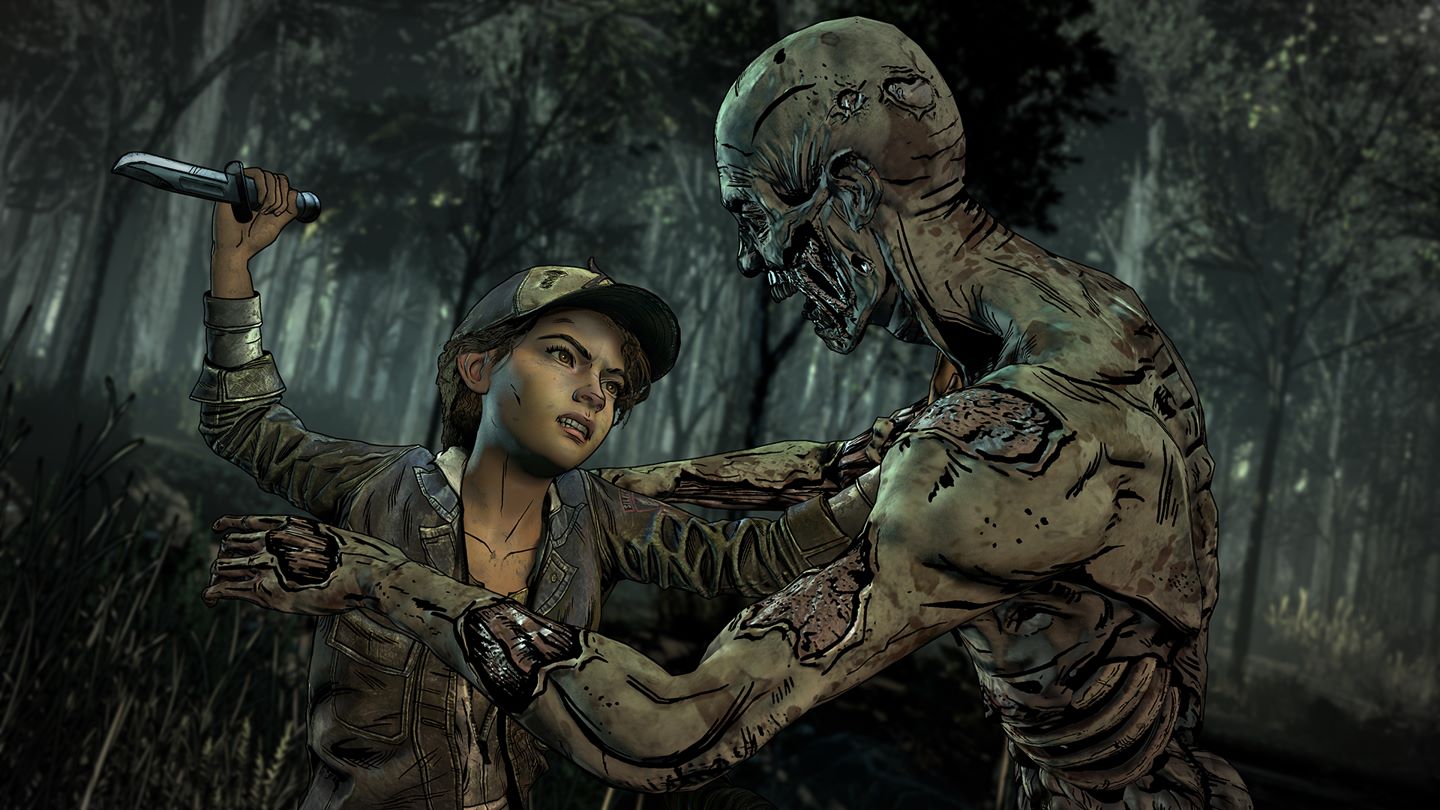
Since the beginning, The Walking Dead has pushed the idea that walkers aren't always your biggest threat. It's the people around you that you need to be just as careful of. We don't get a feel for the real threat until the very end up the episode, and since we don't get a good look at them, they're hard to judge. This does make most of the episode's direction seem bit aimless for a time as you can't see the larger picture, but the possibilities of what's at play will give you chills.
The Telltale Tool
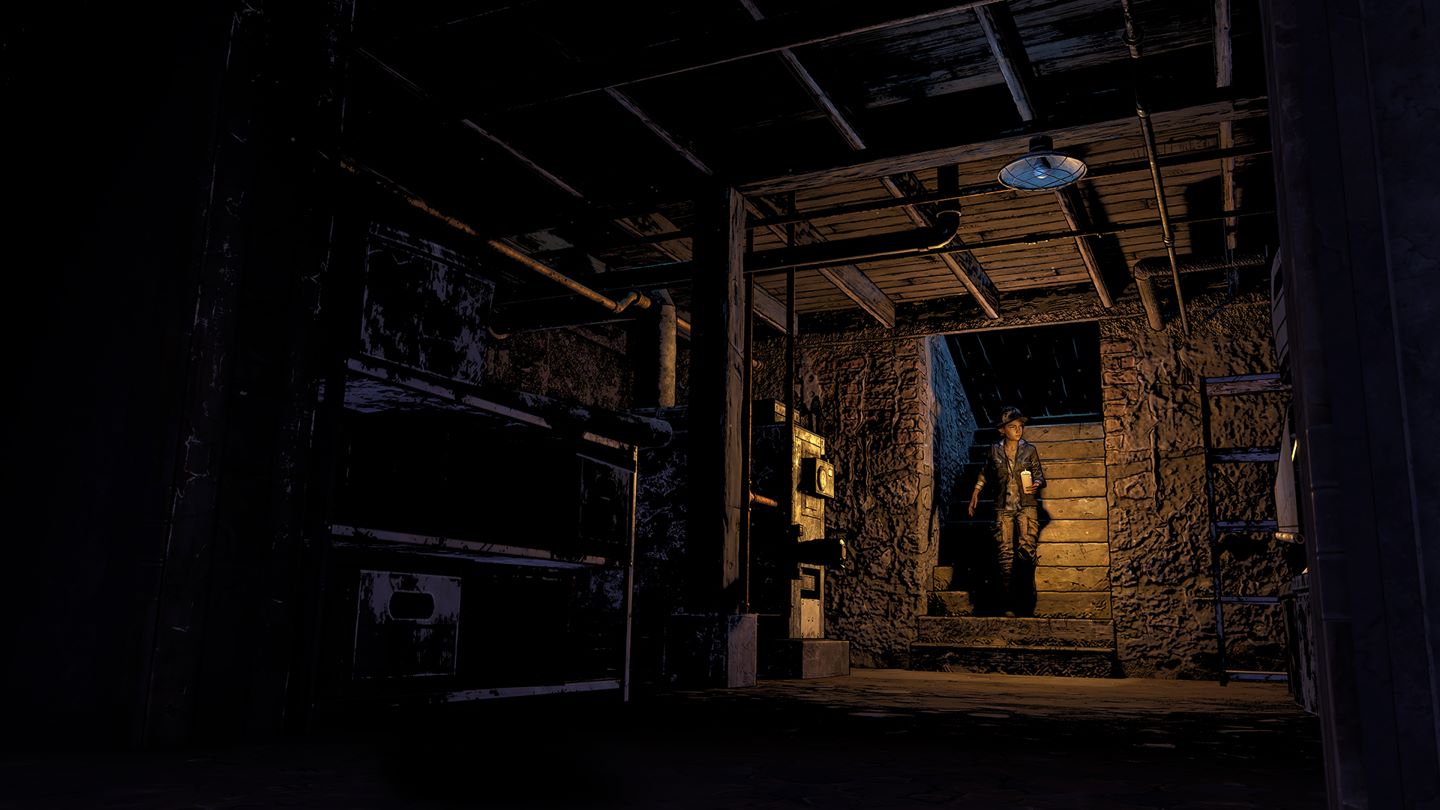
Telltale's engine, the Telltale Tool, is on its last legs. Over the years the performance of the studio's games has gotten rougher and rougher. This season of The Walking Dead is expected to be the last of its game's to run on the Telltale Tool before they switch over to a Unity engine. Despite the old engine's age, however, Done Running may have been the best Telltale episode I've played in a long time in terms of performance. I didn't encounter the usual lag during quick time events, nor did the game freeze or cut dialogue. All in all, it made a good first impression for the rest of the season.
Conclusion
The Walking Dead: The Final Season is off to a satisfying start. The pacing for a majority feels uneven and it doesn't find it's footing until the end, but what an ending it is. While the final scene is shocking, it's the twist set up minutes beforehand that tees up the conflict going forward, and I can't wait to see how it ends.
This is also my open letter to Telltale asking them not to hurt Rosie the dog.
Pros:
- Season One role reversal
- Unexpected twist
- Solid performance
- Guardian Clem
Cons:
- Pacing
- Doesn't find footing until the end
Jennifer Locke has been playing video games nearly her entire life, and is very happy Xbox is growing a stronger first-party portfolio. You can find her obsessing over Star Wars and other geeky things on Twitter @JenLocke95.
